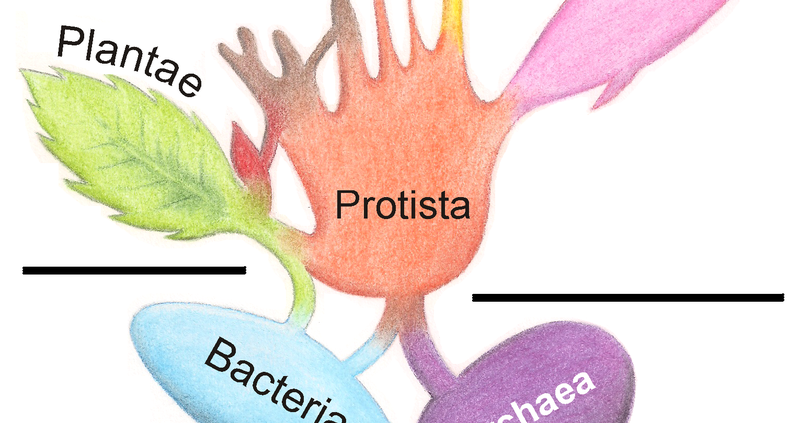The Kingdoms of Life
Contrary to human kingdoms, these are not ruled by a King. Rather, nature is divided into groups based on their likeness to one another. There are many classification systems of life but I will talk about the main one that is widely accepted across the globe. Life is divided into 2 main groups which are further divided into subgroups…many, many times until you reach the “species” classification.
The 2 main divisions are the Prokaryotes and the Eukaryotes. This division is based on whether or not the organism’s DNA is held in a nucleus within their cell/cells. The Prokaryotes consist of the Kingdoms Bacteria and Archaea. Both these groups are single-celled organisms that do not have a nucleus to store their DNA in.
The Eukaryotes are subdivided into 4 Kingdoms; Plantae, Animalia, Fungi, Protista. Plantae we all know as the Kingdom of plants, so this would be any plant you can possibly think of, this is the Kingdom mangroves belong to. Animalia are all the animals, any animals you can think of, this is the Kingdom mudskippers belong to. Fungi are, well, the fungi, so your mushrooms, yeasts and molds. Then, last but not least, although very complicated, we have the Protista. These are single-celled and sometimes multicellular beings that differ from other organisms. They differ in many ways and some only differ in one way. The best way to think of these guys is as small microorganisms (usually the case) that have their DNA stored in their cells’ nucleus unlike bacteria and Archaea.
Further distinctions among organisms are made based on several factors such as RNA, DNA, their development pathways and their common ancestors, to name a few. All of these terms might be unfamiliar to those of you who forgot all about your high school biology lessons or never had them to begin with. The takeaway of this blog is that this is the most generalised version of classifying life. It gets a lot more complicated. I hope this is giving you more of an awareness of just how complex, how interconnected and how biodiverse life is.
Stay tuned to learn more about Phyla next week. Have you ever hear that word before? I’ll show you how much more life there is than you ever thought there would be.
Author:
Layla Olefs
Sustainability Manager and Co-Founder of White Green Blue.
Layla is on a mission to create positive impact and to spread awareness about our beautiful home. As a marine conservationist and PADI Dive Master her passion is the marine world and, of course, mangroves. She is the author of our Ecology and Culture blog series. Stephen Olefs, our Community Development Coordinator, is taking the lead in our Green Tech blog series.









